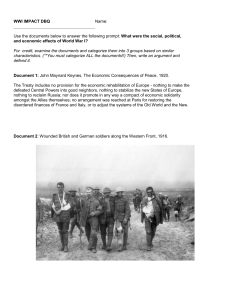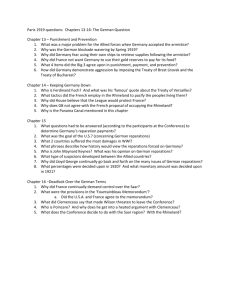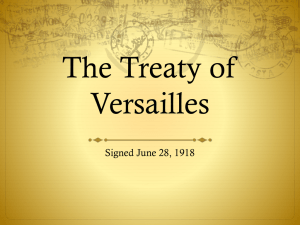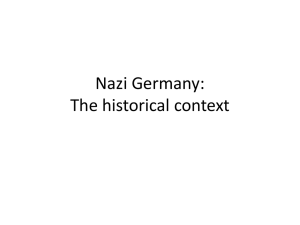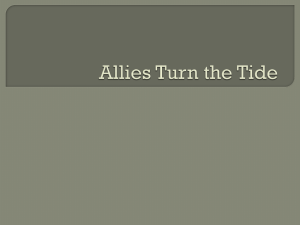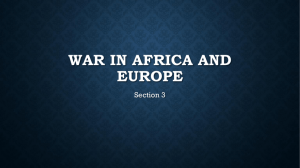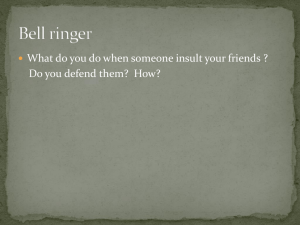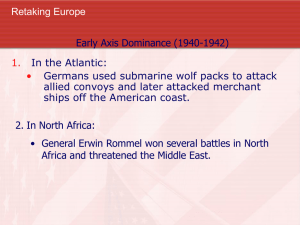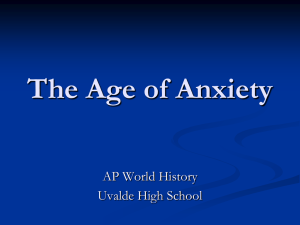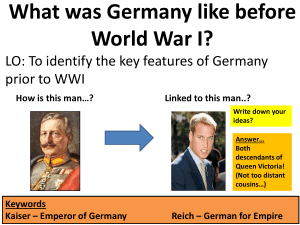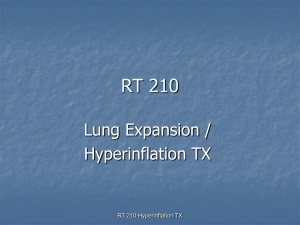Germany in the Aftermath of World War I
advertisement
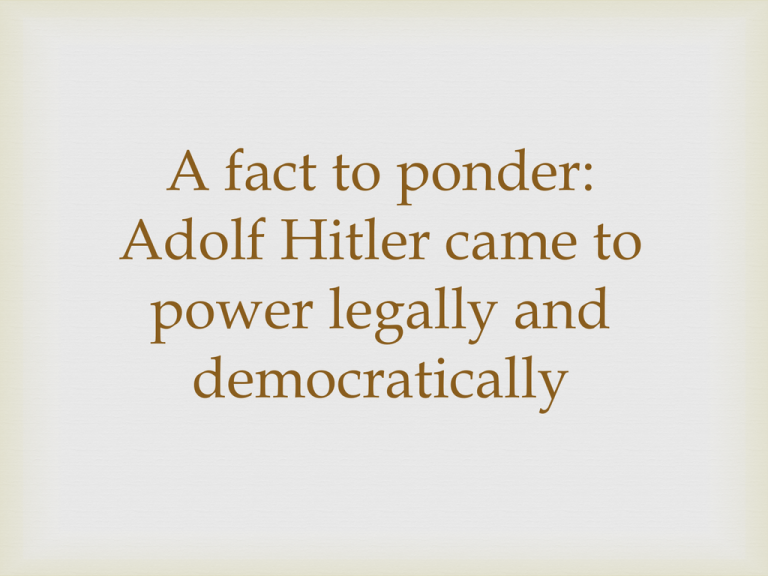
A fact to ponder: Adolf Hitler came to power legally and democratically The End of the First World War Review: World War I 1914-1918 Central Powers (Germany, Austria-Hungary, Ottoman Empire) defeated by Allied Powers (France, United Kingdom, Russia, US) Effects on Germany About 2.5 million dead; many more wounded Political turmoil Psychological shock – Germans didn’t expect to lose the war Dissent in Germany By 1917, tide was turning against Germany Protests and political changes Workers launched walkouts and strikes Leftist political parties began to oppose the war Mutinies in the armed forces Challenges to monarchy and Kaiser Wilhelm II The End of the War July 1918: US troops arrive in France Allied counterattacks push Germany back October 1918: Germany requests an armistice based on Woodrow Wilson’s Fourteen Points November 10: Kaiser Wilhelm abdicates Armistice signed November 11 The Treaty of Versailles Signed June 28, 1919 Treaty ending World War I with Germany Germany was not allowed to negotiate – a diktat Major provisions Blame – the War Guilt Clause Reparations – Germany owed money to the Allies Army – severe limits on Germany’s military Territory – Germany lost 13% of territory + all colonies German Territorial Losses after WWI The War Guilt Clause “The Allied and Associated Governments affirm and Germany accepts the responsibility of Germany and her allies for causing all the loss and damage to which the Allied and Associated Governments and their nationals have been subjected as a consequence of the war imposed upon them by the aggression of Germany and her allies.” The War Guilt Clause June 28, 1919 (included in Treaty of Versailles) Blamed Germany for WWI Germans resented this provision You’re halfway through. Here’s a cat! The Weimar Republic Germany’s Democratic Experiment November 10, 1918: Kaiser Wilhelm abdicates debate over future government January 1919: Germans vote for democratic parties February 1919: new constitution drafted at Weimar Reichstag – a parliament elected by the people President – elected by the people; commander-in-chief of military and able to exercise emergency powers Chancellor – appointed by the President, approved by the Reichstag; relatively weak Three Problems Bitterness and resentment about WWI Political instability Economic problems and hyperinflation Bitterness and Resentment “Stab in the back” theory Limits on Germany’s army put many soldiers out of work Freikorps – literally “Free Corps” – formed to crack down on left-wing parties Many extreme nationalist parties formed, including the National Socialist German Workers’ Party Political Instability 1920 elections: extremist parties take over 35% of vote Communists (20%) – support a workers’ revolution German National People’s Party (15%) – support a monarchy Proportional representation gives extremist parties a chance to join the Reichstag (more on this later) Several coups (illegal attempts to take power) Terrorism by ultra-nationalists against democrats and leftists Economic Problems January 1920: reparations fixed at $33 billion Germany paid in goods as well as cash January 1923: French and Belgian troops occupy the Ruhr and seize assets German workers strike, refusing to cooperate Hyperinflation Date: 1921-1924 German government begins printing money to help pay reparations Led to hyperinflation – rapid decrease in the value of money The Impact of Hyperinflation Middle-class people lost the value of their savings Pensions for the elderly became worthless Allies started demanding payment in goods rather than currency Money had to be spent immediately after being earned
